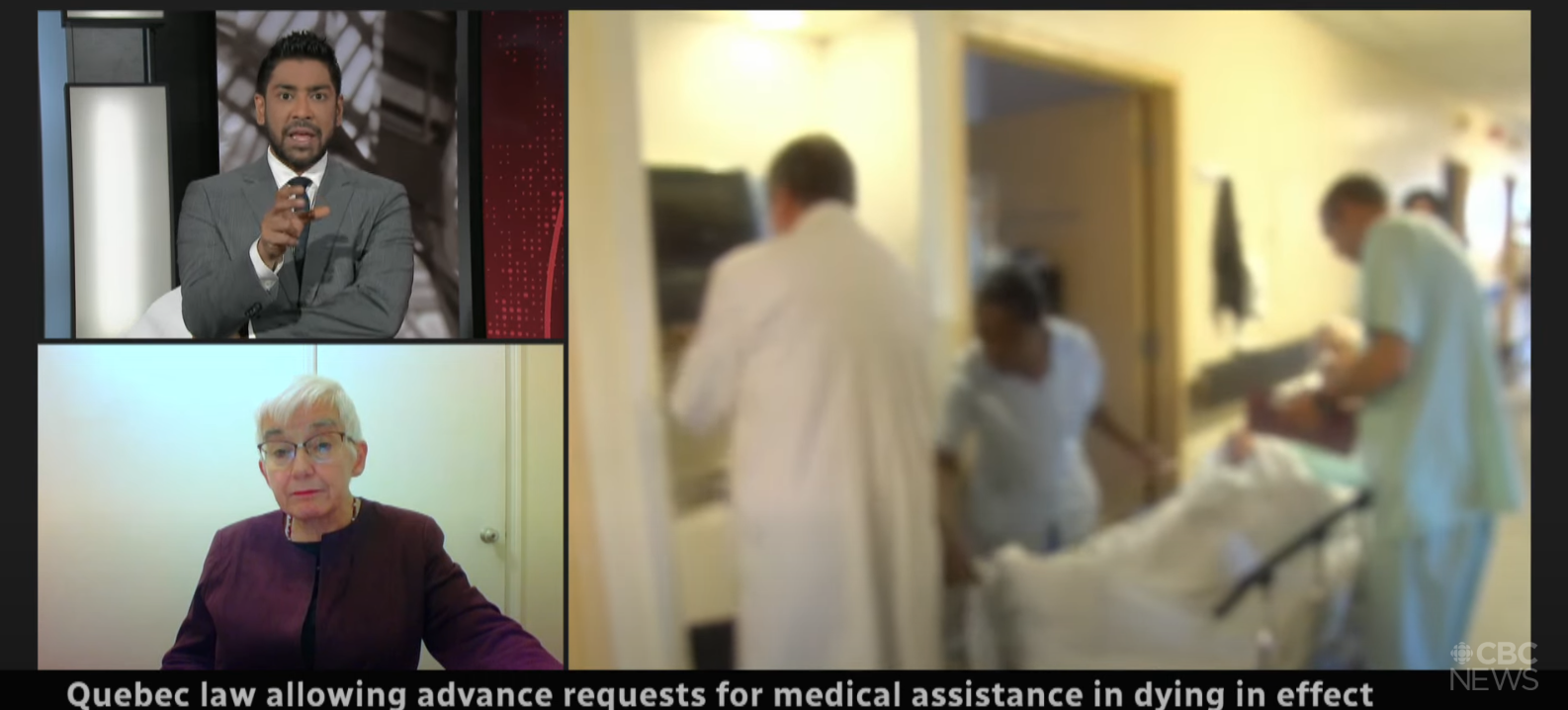Doctor Balfour Mount, a founding physician and first signatory of the Physician’s Alliance Against Euthanasia, was interviewed by Justina Reichel of the Epoch Times. The article “Father of palliative care Slams Quebec Euthanasia Bill” is an excellent read. Dr. Mount and Mrs Reichel allowed us to publish the actual interview.
Justina Reichel: Your life’s work has been centered on the advancement of palliative care in Canada. Did you ever think you would see the day that “medically assisted dying” was legal in this country? How does it make you feel that this could happen with Bill 52?
Balfour Mount: I recognized the risk and for that reason asked Dame Cicely Saunders, founder of the modern hospice movement, to speak on Euthanasia and Physician Assisted Suicide at McGill’s 1982 International Congress, and, 20 years ago, in 1994, published my paper “When Palliative Care Fails to Control Suffering“. It described my experience with a gentleman suffering with existential anguish associated with an incurable brain tumour and the role palliative sedation played in his care. (Journal of Palliative Care 1994, vol. 10, pages 24-26.)
I deeply resent the manipulative phrase “medically assisted dying” when referring to legalizing euthanasia. Medically assisted dying is what I have been concerned with for 40 years. It has no relationship to intentionally ending my patient’s life. Instead, the goal is quality of life. It is revealing that Bill 52 mentions Palliative Care 33 times but doesn’t mention euthanasia (which is what the Bill is about) once.
JR: You have experience on both sides of the hospital bed, both as a doctor and patient. However, you have also referred to your health problems as “blessings.” Can you explain why you feel it was a blessing?
BM: Not all blessings are welcome. Frequently it is the rocky sections of life’s journey that lead to greatest growth, reconciliation with self and others, and unexpected insights. I suggest those who doubt the truth of this statement read Viktor Frankl’s profound book “Man’s Search For Meaning”. He wrote it, he told me, in eight days after being released from Auschwitz. When I feel sorry for myself I think of Frankl. His school was tougher than mine!
JR: How has the illness impacted your perspective on palliative care and Euthanasia?
BM: Having cancer has helped to sharpen the issues for me and has clarified why intentionally ending life has never been considered “a medical act”. 2400 years ago, when the ability to ease suffering was minimal, Hippocrates warned that intentionally ending the patient’s life must always lie outside the doctor’s purview and this promise has been part of the doctor’s oath ever since. We should ask ourselves why now, when we can do so much, the issue has become so urgent. Revealing!
JR: Has there ever been a time during your illness that you have wished to die rather than continue the suffering or seek further treatment? If so, how did you overcome it? What advice would you offer to patients that feel this level of hopelessness?
BM: I sleep sitting up and have done for 14 years since bowel contents run into my lungs if I lie down. Following my esophagectomy and later tracheostomy when I had returned home from hospital and was very weak I commented to Linda, my remarkable wife, that if things didn’t get better I would not want life to live a lot longer. But even at that moment – particularly at that moment – I did not have the illusion that my challenges justified putting my fellow citizens at risk, since euthanasia always puts the most vulnerable among us at risk. (As things worked out, the years since that day have been the richest in my life.)
Relief from suffering required, as it always does, going back to square one and identifying each of the factors that were adding to my suffering and with the help of my caregivers arriving at strategies to carry me through that moment.
My advice for those experiencing deep suffering would be to seek the assistance of an experienced Palliative Care team. Their response would be to sit down with you and your loved ones to examine what exactly the factors are that are contributing to your suffering. The Palliative care team members will accompany you and together you will search out the solutions to the problems as they arise.
It is 40 years since we demonstrated at McGill’s Royal Victoria Hospital that Palliative Care works. Is it available in your community? If not, why not? You have the right to ask that question and to receive state of the art Palliative Care anywhere in Canada!
Balfour Mount OC, OQ, MD, FRCSC, LLDEmeritus Professor of Medicine,
McGill University

